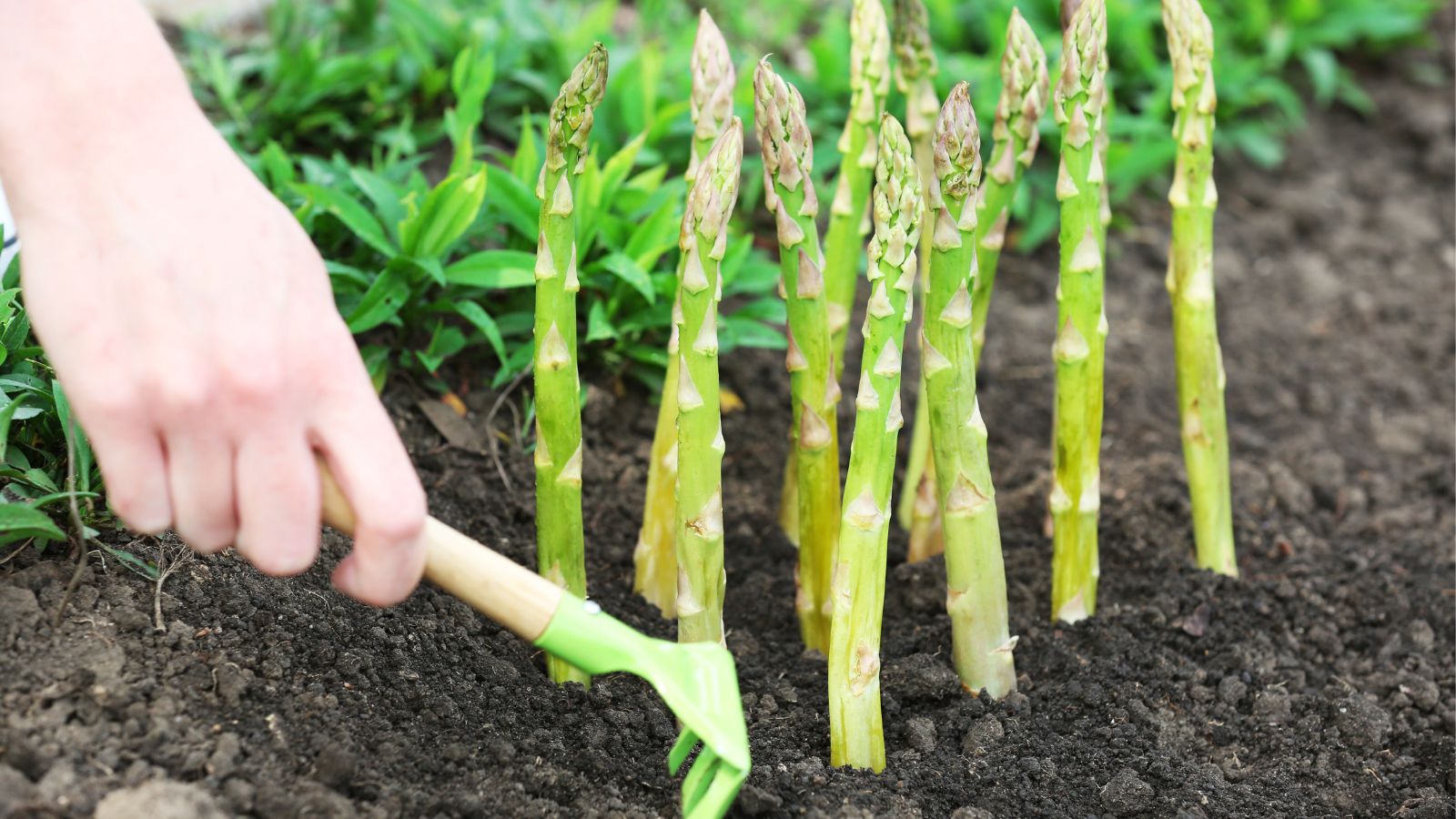How to Grow Better Asparagus in Raised Beds
•Posted on May 16 2024

Asparagus is a perennial favorite among garden enthusiasts, known for its savory spears that can be enjoyed in a variety of dishes.
Growing asparagus, especially in raised beds, requires some specific techniques and care.
This comprehensive guide will walk you through everything you need to know about cultivating asparagus, from selecting the right soil and fertilizers to choosing companion plants that can enhance its growth.
Recommended for You:

What to Know About Asparagus

Garden asparagus, or Asparagus officinalis, is a hardy perennial that is one of the first crops to greet us each spring.
It can produce for 20 years or more with the proper care, making it a rewarding investment for many gardeners.
The plant emerges from crowns planted in nutrient-rich soil, and over the years, it develops into a thick, ferny foliage during the summer months.
Is Growing Asparagus Easy?
While asparagus requires patience and care, especially during its first few years, it’s not necessarily difficult to grow.
The key to success with asparagus lies in preparation and maintenance.
Once established, asparagus plants are relatively low maintenance but getting them to that point takes some effort and patience.
Related Post: How to Grow the Best Strawberries in a Raised Garden Bed
How to Grow Asparagus in Raised Beds

1. Preparation: Start by selecting a sunny spot for your raised bed, as asparagus thrives in full sunlight. Ensure the location you choose can accommodate the plant's long-term growth, as asparagus is a perennial.
2. Soil: Asparagus prefers well-drained, fertile soil with a neutral pH. Before planting, it's crucial to prepare your raised bed with a mix of compost, aged manure, and a good-quality soil mix designed for raised beds.
3. Planting Asparagus Crowns: The best time to plant asparagus crowns is in early spring as soon as the soil can be worked. Lay the crowns in trenches about 12-18 inches wide and 6-8 inches deep, spreading the roots out in the trench. Cover them with 2-3 inches of soil initially, then gradually fill in the trench as the stems grow.
4. Watering: Keep the soil consistently moist but not waterlogged. Asparagus plants need more water in their initial years to establish a strong root system.
5. Mulching: Apply a layer of organic mulch to retain moisture, suppress weeds, and regulate soil temperature.
Recommended for You:

What Companion Plants to Grow with Asparagus

Companion planting can help deter pests and promote a healthy, productive garden. Good companions for asparagus include:
- Tomatoes: The solanine naturally found in tomatoes can help repel asparagus beetles.
- Parsley: Helps to enhance the vigor of asparagus.
- Basil: Improves flavor and helps repel harmful pests.
Avoid planting garlic and onions near asparagus, as they can stunt the growth of your asparagus plants.

What Soil to Use for Raised Garden Beds
For raised garden beds, especially when growing asparagus, choose a soil mixture that provides excellent drainage and is rich in organic matter.
A blend of one-third compost, one-third topsoil, and one-third peat moss or coconut coir can create an ideal growing environment for asparagus.
Related Post: How to Get Rid of Stink Bugs in the Garden
What Fertilizer to Use for Asparagus

Asparagus benefits significantly from high-phosphorus and potassium fertilizers to support root development and growth.
After initial planting, using a balanced fertilizer can help establish young plants.
Once established, switching to a phosphorus-rich fertilizer can promote better yields and healthier spears.
-
Greenway Biotech Monopotassium Phosphate: This is an excellent choice for providing high levels of phosphorus and potassium. It helps strengthen the root system and improves the overall health of the asparagus plant.
-
Bone Meal: Applying bone meal around the base of the plants can provide a slow-release form of phosphorus, which is vital for the vigorous growth of asparagus.
Recommended for You:

Conclusion
Growing asparagus in raised beds can be a delightful and rewarding gardening project.
By ensuring proper soil preparation, choosing the right companions, and using targeted fertilizers like Greenway Biotech Monopotassium Phosphate and Bone Meal, you can enjoy bountiful harvests of this delicious perennial vegetable for many years to come.
Whether you’re a novice or an experienced gardener, integrating these practices will help you master the art of asparagus cultivation in your own backyard.
Comments
0 Comments
Leave a Comment